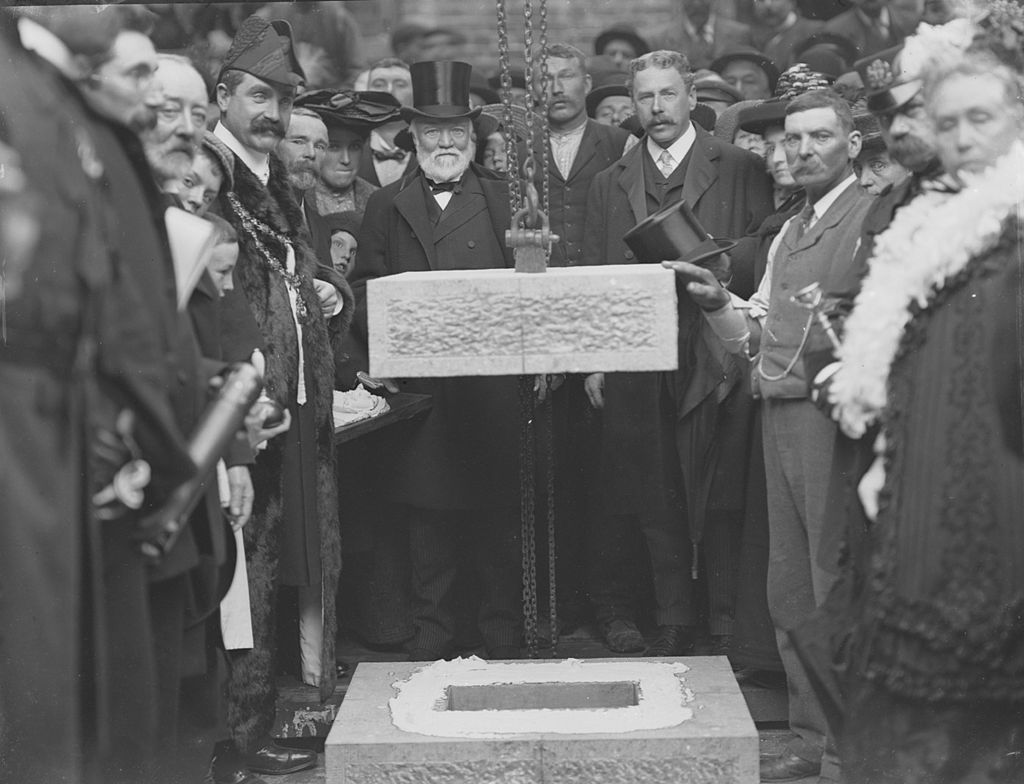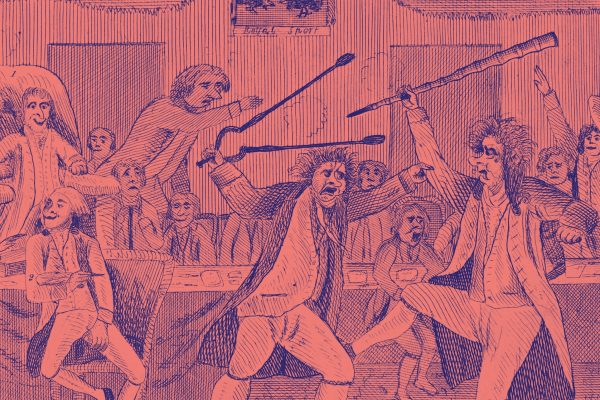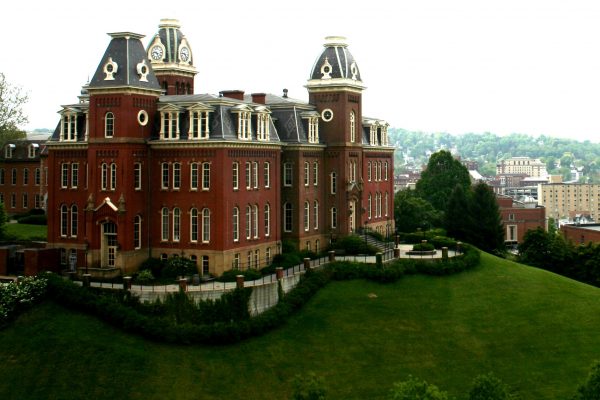Editors’ Note: The following is an excerpt from Rob Reich’s Just Giving: Why Philanthropy Is Failing Democracy and How It Can Do Better (Princeton).
“That our creator made earth for use of the living, and not of the dead; that those who exist not can have no use nor rights in it, no authority or power over it.” –Thomas Jefferson
Should the government be allowed to interfere with a philanthropic organization’s purpose? Should it be allowed to appropriate a foundations’ assets? The questions may strike many of today’s readers as absurd, but they weren’t always. When John D. Rockefeller asked the federal government to charter the creation of the Rockefeller Foundation, for example, he offered a series of concessions that gave the public a governance role in the foundation, including members of the board being subject to a veto by a congressionally appointed board. The concessions were meant to allay anxiety about the democracy-corrupting influence of a large and unaccountable private foundation, but they still were not enough for the U.S. Congress, which turned him down. The New York legislature granted approval without any concessions to the public interest, and the people’s representatives in Washington lost their chance to control the world’s largest philanthropy.
“In perpetuity” is often seen as a beneficial aspect, as if the founder’s good intentions should, of course, be honored forever. But John Stuart Mill would beg to differ.
Today, the default legal time horizon for the establishment of a philanthropic foundation is perpetuity, for the entity and the charitable purpose of the founder to extend indefinitely with essentially no oversight. Donors can opt to spend down the principal or specify a spend out date if they wish, but the vast majority of foundations are created with a legal direction not merely to outlive the donor but to exist forever. “In perpetuity” is often seen as a beneficial aspect, as if the founder’s good intentions should, of course, be honored forever. But John Stuart Mill would beg to differ. Finding it “so obvious” that he could scarcely conceive how any “earnest inquirer” could think otherwise, Mill wrote that the intentions of the endowment’s founder should be legally protected for his lifetime and perhaps a short duration thereafter. But no foundation should have its purpose fixed forever.
In my new book, Just Giving: Why Philanthropy Is Failing Democracy and How It Can Do Better, I argue that the legal form of the foundation is defensible only when philanthropic assets are directed for long-term social experimentation. In 1911, for example, Rockefeller proposed to Congress that the life span of his foundation be capped at a hundred years, or five generations—which seems to me an adequately long horizon in which to engage in the important, democracy-supporting work of discovery. But perpetuity is too long a time horizon—indeed it may even be injurious to the social utility of a foundation. The arguments of Mill help to show why.
• • •
Mill wrote three essays about foundations over the course of thirty years in the mid-nineteenth century. His framework helps us understand how a liberal democratic state should treat philanthropic endowments established by the wealthy or corporate entities. Mill was deeply critical of the actual operation of foundations around him, especially the church, writing that foundations were among the “grossest and most conspicuous of the familiar abuses of the time.” Yet, in his writing, he also left room for a principled defense of their existence. His general argument was that endowments should be permitted, in some cases even celebrated, but that they should never be perpetual and that the state must always retain the right to intervene in a philanthropic endowment. His baseline conclusion: “all endowments are national property, which the government may and ought to control.”
Mill rejects eternal rights of founders and funders, as well as claims that the state, by interfering with a foundation, is violating property rights. The dead have no property rights, Mill claims.
It is worth examining Mill’s arguments in some detail, not merely for the clarity with which he sets out his case but for the refreshing lack of reverence or sentiment he has for philanthropy. Mill sings no hymns of praise to the wisdom of wealthy men or to the public spirit of philanthropic entities. What, Mill asks, are the rights and duties of a legislature with respect to endowments and foundations? His answer is unambiguous. There is “no moral hindrance” to a legislature in interfering with endowments, even if such interference amounts to “a total change in their purposes.” His exposition is philosophical, by which I mean he is chiefly concerned with the moral principles at stake that make the inquiry general. But he admits to a practical motivation, too: a “most pressing” need for the public and the British Parliament to decide what may and should be done with the property of the church and of other public corporations.
There is therefore a question of political ethics: would state control over foundations amount to a violation of liberty, property, and first principles of justice? There is also a practical question, since permanent endowments already exist, and therefore Mill asks under what circumstances, and to what end, a government might assert control over a foundation. The practical question is only worth addressing if the answer to the philosophical question is to defend state control over foundations. So Mill focuses the lion’s share of his attention on the general and philosophical question.
In so doing, Mill sets aside consideration of the projects and motives of individual philanthropists. If foundations as a class are to be found objectionable, it should not be on grounds that one dislikes or disapproves of the particular interests of a donor. Let any person have an opinion on any foundation, and yet separate from the mind, says Mill, all impression or evaluation of the character of the donor or the purposes of the endowment. “We have our opinion, like other people, on the merits or demerits of the clergy, and other holders of endowments. We shall endeavor to forget that we have any.”
Having established the clear ground of principle on which to proceed, Mill argues that circumstances change, societies evolve, old needs dissipate and new needs arise, and no founder could ever be so wise as to infallibly predict the future. To permit foundations to exist in perpetuity amounts to making “the dead judges of the exigencies of the living” and that “under the guise of fulfilling a bequest” a foundation transforms a “dead man’s intentions for a single day” into a “rule for subsequent centuries.” Summoning all his rhetorical powers to signal the strength of his conviction, Mill concludes:
There is no fact in history which posterity will find it more difficult to understand, than that the idea of perpetuity, and that of any of the contrivances of man, should have been coupled together in any sane mind: that it has been believed, nay, clung to as sacred truth, and has formed part of the creed of whole nations, that a signification of the will of a man, ages ago, could impose upon all mankind now and for ever an obligation of obeying him: — that, in the beginning of the nineteenth century, it was not permitted to question this doctrine without opprobrium.
Mill rejects eternal rights of founders and funders, and sweeps aside any claim that by interfering with a foundation the state is engaging in a violation of property rights. The dead have no property rights, Mill claims. Neither do the trustees of a foundation, who serve as successors to the initial founder and are obliged to carry out the founder’s purposes. To the extent there is any property interest, Mill says the property belongs to the intended beneficiaries of the endowment, the people for whom the foundation had been created. It is therefore no crime “to disobey a man’s injunctions who has been dead five hundred years.”
A society that fosters philanthropic endowments in a particular manner can improve upon democratic governance.
Take, as an example, the state reclaiming church land or assets. To the objection that Mill’s argument amounts to a defense of robbing the church, he replies that it is not the clergy but the congregants who own the church’s endowments, and that it is permissible for the state to act on behalf of these congregants to redirect the purposes of the endowment, if need be, to their own benefit. Mill is scoring some easy points here, and only later does he confront the real legal obstacle and objection to his position. That objection is that the church is a corporation, and foundations of many kinds have been incorporated by the state. Corporations are legal personifications, can possess property, and therefore it is the church as a corporate body that would be robbed were the state to expropriate any church endowment and redirect it to some ostensibly more socially useful purpose. This line of reasoning would apply as much today as it did in Mill’s time. Mill concedes the point, namely that the church is a corporate body with legal claims of personhood and ownership. His reply is straightforward, a paradigmatic expression of Mill’s Socratic impulse: “because the law is so, does it follow that it ought to be? Or that it must remain protected against amendment?” Mill’s response, in effect, is that the law is morally bad and should be changed. Neither the dead nor corporate entities should be entitled to any rights, or at least rights of the same kind of significance that attach to the living. Mill announces here a striking claim: “The only moral duties which we are conscious of, are towards living beings, either present or to come; who can be in some way better for what we do or forbear.” Indeed, Mill says he would not be troubled at all should a government push aside the alleged rights of founders, of trustees, or of corporate bodies. To the contrary, he would “sleep with an untroubled conscience the sleep of the just; a sleep which the groans of no plundered abstractions are loud enough to disturb.”
Mill concludes by explaining under what circumstances and for what purposes the government ought to intervene in a perpetual endowment. He offers the criteria, first, that intervention is warranted only for purposes of social utility; and second, that when a government intervenes, it should do so by hewing as closely as possible to the intentions of the founder. Mill is concerned not to authorize state action that would permit confiscation of endowments for any purpose at all, especially for purposes that might tempt legislators looking for means to pay off state debts or diminish burdens of taxation more generally. These criteria, and Mill’s discussion of them, are less significant for my purposes than is his reasoning against perpetual foundations and his endorsement of time-limited foundations that serve to support and enhance democratic government. This latter aspect of Mill’s argument is especially important, for it provides an example of how the rules and norms that structure philanthropy can render its activities supportive of democratic ideals.
• • •
Foundations need not merely be scrutinized by the state to ensure their social usefulness. A society that fosters philanthropic endowments in a particular manner can improve upon democratic governance. Mill offers three distinct reasons why foundations, especially educational and cultural endowments, directed solely by the preferred projects of donors so long as their preferences are not guaranteed in perpetuity, can play a salutary social role.
First, governments are fallible, and though it is important for the state to undertake its own projects and to express its preferences about the provision of various goods, it should not block or deter others from attempting to provide the same goods in different ways or different goods altogether. “A government,” Mill says, “when properly constituted, should be allowed the greatest possible facilities for what itself deems good; but the smallest for preventing the good which may chance to come from elsewhere.”
Rockefeller, Carnegie, Sage, and their many philanthropic predecessors practiced philanthropy without any federal or state tax incentives.
Second, Mill points out that under democratic government, “the opinion of the majority gives the law.” Therefore, permitting the creation of time-limited foundations affords minority opinions a voice and a public hearing. It permits minorities a mechanism to produce the kinds of public goods that they cannot manage to convince a majority to authorize through elected representatives. In so doing, minorities can attempt to persuade the majority and shift provision of their preferred goods to the public purse. Even if they fail in persuading others, Mill says they are still a “convenient mode of providing for the support of establishments which are interesting only to a peculiar class, and for which, therefore, it might be improper to tax all the members of the community.”
Third, democratic states that permit the creation of foundations undertake what we could call “experiments in living.” It might be the case that particular foundations are genuinely eccentric and contribute little, if anything, to the greater part of the public. It is the activities of foundations in the aggregate, however, that command democratic attention. When private individuals can publicly expression their individual, even idiosyncratic views about the public interest not merely through their voices but through their wallets, it not only makes space for minority views, but can be an important mechanism of social progress. Private foundations in the aggregate can supply variety, diversity, and experimentation in a never-ending conversation and contestation about what counts as a public good or a worthy social service. Mill issues a ringing defense of such endowments: “What is called tampering by private persons with great public interests . . . means trying to do with money of their own something that shall promote the same objects better. . . . It is healthy rivalry.”
•••
Are foundations in the United States today fulfilling their role in democratic society? Are they good at fostering pluralism and discovery? Skepticism is certainly warranted. However, my aim is not to defend or excoriate the behavior and performance of foundations; rather, it is to identify the right standard by which to assess their performance and confer a certain amount of legitimacy on their distinctive and considerable institutional privileges. For example, philanthropy in general, including the creation of foundations, is generously tax-subsidized in the United States and in many other countries. Under current U.S. law, assets transferred to a foundation by a donor are left untaxed in two respects: the donor makes the donation (more or less) tax-free, diminishing the tax burden she would face in the absence of the donation; and the assets that constitute a foundation’s endowment, invested (usually to maximize overall return) in the marketplace, are also (more or less) tax-free.
Citizens pay (in lost tax revenue) for foundations, and by extension for giving public expression to the preferences of rich people.
It was not always thus. Philanthropic activity dates back to antiquity, but tax deductions for donors (as opposed to tax exemptions for asset or property endowments, such as waqfs) date back only to 1917 and the creation of a federal income tax. Rockefeller, Andrew Carnegie, Margaret Olivia Sage, and their many philanthropic predecessors practiced philanthropy without any federal or state tax incentive for the donation of assets to establish a philanthropic endowment. After a week that saw Michael Bloomberg donate $1.8 billion to his alma mater, Johns Hopkins University—the biggest gift ever to an academic institution—it is important to note that charitable donations will cost the U.S. government $750 billion in lost revenue over the next ten years. Citizens pay (in lost tax revenue) for foundations, and by extension for giving public expression to the preferences of rich people.
Even in spite of their plutocratic power, however, the peculiar institutional form of the foundation can have an important role in democracy. We simply must remember that philanthropy is an act with political dimensions, in the sense that philanthropy is the direction of private assets toward some public influence. For there to be the prospect of social progress, the present should never be tethered to the design and purpose of founders long dead.








